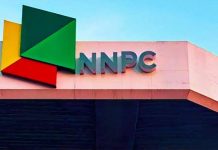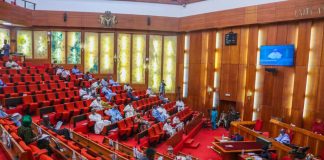🌿 Ruzu Non-Alcoholic Herbal Bitters
Ruzu Non-Alcoholic Herbal Bitters is a natural health supplement specially formulated to:
- ✅ Promote general wellness
- ✅ Detoxify the body
- ✅ Support the treatment of various ailments
Made from a powerful blend of 100% organic and medicinal herbs, Ruzu is completely alcohol-free, making it ideal for:
- 👪 All age groups
- 🌱 Health-conscious individuals
- 🌿 Anyone seeking non-alcoholic herbal remedies
Whether you're looking to boost your vitality, cleanse your system, or support healing the natural way, Ruzu Bitters offers a trusted herbal solution.
According to reports, the Federal Government of Nigeria has given its approval for the Shell Petroleum Development Company (SPDC) to sell its onshore assets to a local oil and gas consortium called Renaissance Africa Energy Company Limited.
Renaissance announced the permission in a statement on Wednesday, according to Reuters.
“From the announcement of the sale and purchase agreements in January, this approval represents a significant step forward,” Renaissance said in the statement.
Heineken Lokpobiri, the Minister of State for Petroleum Resources, is said to have granted the consent.
Shell’s $5 billion investment in the Bonga North project, according to Africa Report, played a key role in convincing the government to authorize the sale of the onshore asset, which was originally supposed to be worth $1.3 billion.
History
Despite an agreement between SPDC and the Renaissance in January, it was claimed that the Nigerian Upstream Petroleum Regulatory Commission (NUPRC) denied the sale in October.
In addition to 56.27 trillion cubic feet of related and non-associated gas, the assets are anticipated to contain 6.73 billion barrels of oil and condensate.
Gbenga Komolafe, the CEO of NUPRC, stated that the commission turned down the agreement because it “could not scale (the) regulatory test.”
In addition, Shell Nigeria is facing a number of lawsuits and accusations related to environmental degradation and violations of human rights in the Niger Delta.
NUPRC stated that it would only approve the transaction if Shell agreed to pay for Niger Delta cleaning and accept responsibility for oil spills.
What you ought to be aware of
Shell Plc agreed to sell its onshore oil assets in Nigeria to a local company called Renaissance Group.
Read Also: Tinubu Lands in Lagos for Christmas, New Year Following Budget Presentation
The local oil firms ND Western Ltd., Aradel Holdings Plc, Petrolin Group, FIRS Exploration and Petroleum Development Co., and Waltersmith Group are all part of the Renaissance Group.
In October, the NUPRC, the upstream regulatory body, blocked the agreement.
According to NUPRC, it asked Shell to take accountability for oil spills that caused environmental and human harm and to make a commitment to remediation.
Oil firms are abandoning onshore operations and selling off offshore businesses, including Shell, Total Energy, and Eni.
They are doing this in order to avoid having to deal with the local communities that suffer from environmental degradation and oil spills. Additionally, these corporations had to deal with problems like pipeline vandalism and oil theft.
















